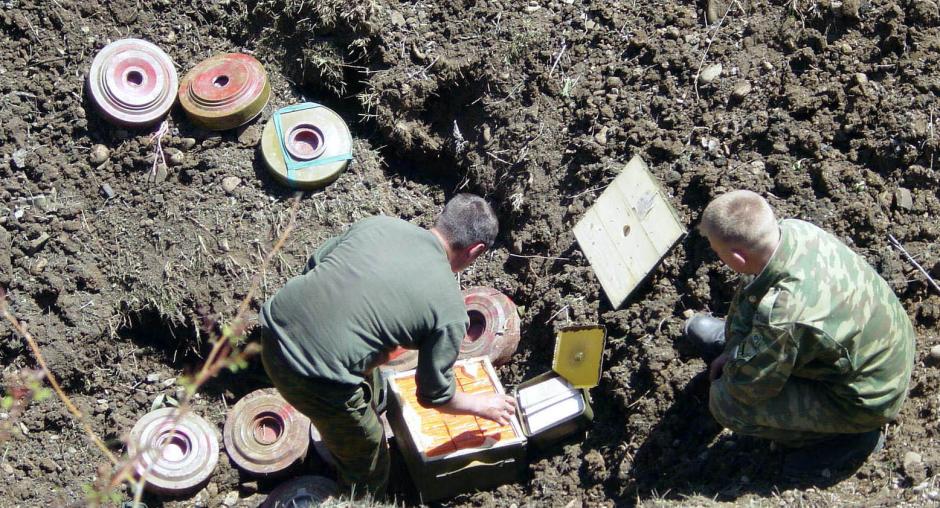OSCE workshop strives for better co-operation towards mine-free region in South Caucasus

TBILISI, 7 October 2005 - Improving mine action by establishing and enhancing dialogue and co-operation was the aim of a two-day regional workshop for the South Caucasus which ended yesterday in Tbilisi.
The workshop, 'Regional Co-operation and Confidence Building through Mine Action", was jointly organized by the OSCE and the International Trust Fund for Demining and Mine Victims Assistance (ITF), established by the Slovenian Government in 1998.
Over 70 participants from Armenia, Azerbaijan, Georgia, Tajikistan, Kyrgyzstan, Kazakhstan and of number of non-governmental and international organizations presented an overview of the current situation in the region and best practices from other mine-affected regions.
"The continuation of unresolved conflicts in the region makes it topical and appropriate that the governments should be considering action to deal with the issue of mines," said Ambassador Roy Reeve, Head of the OSCE Mission to Georgia, who moderated the first session of the conference.
"We welcome this conference, which follows the first such held in Yerevan some years ago. It is both relevant and timely".
Mindful that landmines have a significant impact on security, humanitarian, environmental and economic development, the participants agreed to hold a follow-up workshop in Central Asia. They also expressed a commitment to intensify relations and co-operation to reach the goal of mine-free regions of South Caucasus and Central Asia.
"Specifically, the aim is the complete ban on the use, development, production, stockpiling and transfer of anti-personnel mines by all countries as called for by the OttawaTreaty," said Zbigniew Fec, Chief Military Officer of the OSCE Mission.
The OSCE is one of the leading international organizations in the South Caucasus region and is working to improve the overall socio-economic situation in this part of Europe.
The governments of Canada, the Netherlands and Slovenia co-sponsored the workshop.
